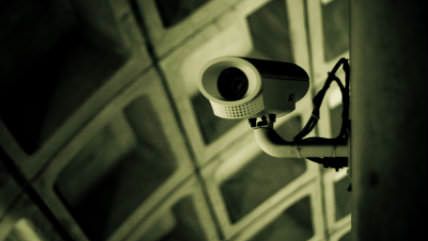No, Mass Surveillance Won't Stop Terrorist Attacks
The continued use of digital dragnets is a virtual guarantee of more lethal intelligence failures.

The recent terrorist attack on the office of French satirical magazine Charlie Hebdo generated a now-familiar meme: Another terrorist attack means we need more surveillance.
Sen. Bob Corker (R-Tenn.) said that while "Congress having oversight certainly is important … what is more important relative to these types of events is ensuring we don't overly hamstring the NSA's ability to collect this kind of information in advance and keep these kinds of activities from occurring." Similarly, Sen. Lindsey Graham (R-S.C.) spoke of his "fear" that "our intelligence capabilities, those designed to prevent such an attack from taking place on our shores, are quickly eroding," adding that the government surveillance "designed to prevent these types of attacks from occurring is under siege."
A recent poll demonstrates that their sentiments are widely shared in the wake of the attack.
But would more mass surveillance have prevented the assault on the Charlie Hebdo office? Events from 9/11 to the present help provide the answer:
- 2009: Umar Farouk Abdulmutallab—i.e., the "underwear bomber"—nearly succeeded in downing the airline he was on over Detroit because, according to then-National Counterterrorism Center (NCC) director Michael Leiter, the federal Intelligence Community (IC) failed "to connect, integrate, and fully understand the intelligence" it had collected.
- 2009: Army Major Nidal Hasan was able to conduct his deadly, Anwar al-Awlaki-inspired rampage at Ft. Hood, Texas, because the FBI bungled its Hasan investigation.
- 2013: The Boston Marathon bombing happened, at least in part, because the CIA, Department of Homeland Security (DHS), FBI, NCC, and National Security Agency (NSA) failed to properly coordinate and share information about Tamerlan Tsarnaev and his family, associations, and travel to and from Russia in 2012. Those failures were detailed in a 2014 report prepared by the Inspectors General of the IC, Department of Justice, CIA, and DHS.
- 2014: The Charlie Hebdo and French grocery store attackers were not only known to French and U.S. authorities but one had a prior terrorism conviction and another was monitored for years by French authorities until less than a year before the attack on the magazine.
No, mass surveillance does not prevent terrorist attacks.
It's worth remembering that the mass surveillance programs initiated by the U.S. government after the 9/11 attacks—the legal ones and the constitutionally-dubious ones—were premised on the belief that bin Laden's hijacker-terrorists were able to pull off the attacks because of a failure to collect enough data. Yet in their subsequent reports on the attacks, the Congressional Joint Inquiry (2002) and the 9/11 Commission found exactly the opposite. The data to detect (and thus foil) the plots was in the U.S. government's hands prior to the attacks; the failures were ones of sharing, analysis, and dissemination. That malady perfectly describes every intelligence failure from Pearl Harbor to the present day.
The Office of the Director of National Intelligence (created by Congress in 2004) was supposed to be the answer to the "failure-to-connect-the-dots" problem. Ten years on, the problem remains, the IC bureaucracy is bigger than ever, and our government is continuing to rely on mass surveillance programs that have failed time and again to stop terrorists while simultaneously undermining the civil liberties and personal privacy of every American. The quest to "collect it all," to borrow a phrase from NSA Director Keith Alexander, only leads to the accumulation of masses of useless information, making it harder to find real threats and costing billions to store.
A recent Guardian editorial noted that such mass-surveillance myopia is spreading among European political leaders as well, despite the fact that "terrorists, from 9/11 to the Woolwich jihadists and the neo-Nazi Anders Breivik, have almost always come to the authorities' attention before murdering."
Mass surveillance is not only destructive of our liberties, its continued use is a virtual guarantee of more lethal intelligence failures. And our continued will to disbelieve those facts is a mental dodge we engage in at our peril.


Show Comments (23)